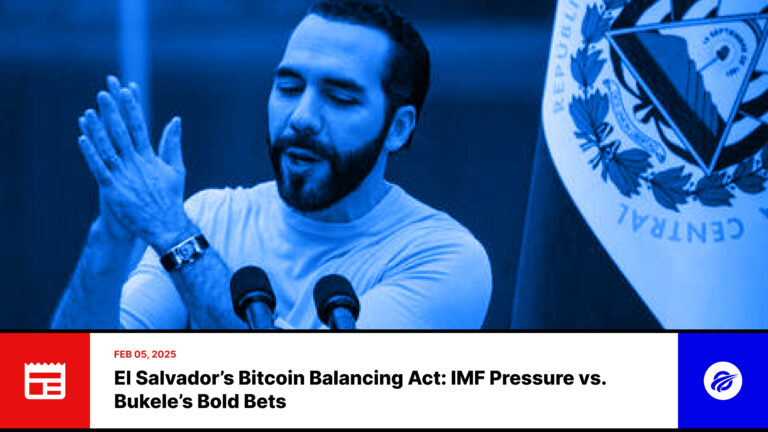El Salvador’s Bitcoin Balancing Act: IMF Pressure vs. Bukele’s Bold Bets.
El Salvador is doubling down on Bitcoin despite commitments to scale back its crypto ambitions under a recent $1.4 billion loan agreement with the International Monetary Fund (IMF). In a move that highlights President Nayib Bukele’s unwavering confidence in the digital asset, the country has quietly expanded its Bitcoin reserves—even as lawmakers pass restrictions to comply with IMF conditions.
Since the beginning of 2025, El Salvador has purchased 52 more Bitcoin, bringing its total holdings to over 6,055 BTC, currently valued at nearly $600 million. While the government typically acquires one Bitcoin per day, it notably bought two on February 1, signaling that its accumulation strategy remains intact despite external pressures.
IMF Deal and New Legal Amendments
Under the terms of the IMF agreement signed in December, El Salvador agreed to soften its aggressive Bitcoin policies. The deal required Bitcoin acceptance to be voluntary for businesses, limited government participation in crypto-related activities, and mandated that taxes be paid exclusively in U.S. dollars. Additionally, the government committed to gradually reducing its involvement in the Chivo Wallet, a state-backed crypto payment app launched in 2021.
To meet these obligations, lawmakers and Bukele’s administration passed legal amendments last week, ensuring the country remains in compliance with IMF conditions. These changes mark a shift from El Salvador’s previous stance, which made Bitcoin acceptance mandatory for businesses—an approach that was met with resistance from retailers wary of the cryptocurrency’s volatility.
BitGalactic’s Take: A Calculated Defiance?
From BitGalactic’s perspective, El Salvador’s strategy appears to be a balancing act—complying with the IMF on paper while quietly maintaining its pro-Bitcoin stance in practice. Bukele has long championed Bitcoin as a tool for financial inclusion, arguing it can benefit the 70% of Salvadorans without access to traditional banking services.
The government’s continued Bitcoin accumulation, even amid IMF restrictions, suggests that El Salvador is playing a long game. By using a dollar-cost averaging strategy—steadily purchasing Bitcoin over time—Bukele’s administration could be betting on long-term appreciation rather than short-term compliance.
Despite the IMF’s influence, Bukele’s actions indicate that El Salvador is not abandoning its crypto experiment anytime soon. If Bitcoin’s value surges in the coming years, this bold defiance could prove to be a masterstroke—or a high-stakes gamble with national reserves. Either way, the world is watching.
Share this post


